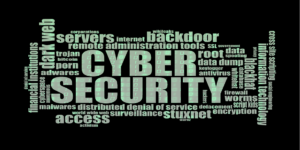Modern businesses have a lot on their plate to account for. This includes deadlines on models that have to be made, the need to be accessible 24/7 and the high expectations that your customers have. This takes a lot of time, so it is no surprise that a lot of small businesses tend to make mistakes. They don’t keep themselves up to date with the ever-rising wave of threats, nor how to prevent or counteract them. If you don’t want to be one of those businesses, then here is a list of common IT mistakes and how to avoid them.
Exposure to spyware
A lot of small businesses fail to obtain the necessary protection against spyware. Spyware tracks user behavior and gathers sensitive data, mainly in order to show undesirable ads. It doesn’t corrupt or destroy data like viruses, but can have a very negative impact on business. For starters, taking care of a spyware infection requires more than two days and costs up to $8,000 annually. What is more, that doesn’t even include lost revenue. A lot of businesses have reported a detrimental effect of spyware on their productivity.
While there isn’t a spyware strategy that is infallible, there are certain things that can be done to protect your business. The first step is to install anti-spyware apps that have good reputation, and remember to keep them updated on a regular basis. Your systems should also be regularly scanned. A second anti-spyware program is a good idea for environments that involve high risks. Finally, what you need to know is that most antivirus and antispyware software is not free for commercial use.
Hardware and software problems
The PC upgrade cycle should be set at up to four years. This is because repair and support investments will only grow in time, and in the end that might cost much more than upgrading to new hardware. Furthermore, many businesses make the mistake of not standardizing hardware and software. As a result, they get a jumble of components and applications that make repair, deployment and troubleshooting an issue. To make things worse, old hardware reduces efficiency and can have negative effect on sales and business opportunities.
Weak backup strategy
Failure to properly backup data is a common mistake for small businesses. There is a high chance that losing critical data will lead to those businesses ceasing operations. Data loss means a lot of lost days of productivity and recovering important information from damaged discs costs a lot of money. Many businesses think that they have done their best to protect their data, but even then there is a high chance they could still be at risk. Furthermore, it often happens that wrong data gets backed up.
The best course of action is to hire an IT consultant who will make sure that the proper data is backed up, and that it is done so regularly. Moreover, they will test the sets of backup data in order to be certain that it can be fully recovered. Consultants can play an essential role in keeping backup routines up to date in the case that critical file locations are changed by, for example, software upgrades.
Security failures
Security issues are a vital thing to keep in mind. However, a lot of businesses fail to comprehend the risks and don’t prepare themselves for potential security failures. The fact is that both high profile and low profile businesses can be victims of hacker attacks. Hackers have built a large number of programs that constantly check the Internet for systems with weak defenses. Getting compromised by a hacker leads to various disastrous results such as identity and data theft, or even ransomware. If a business fails to properly secure customer and client data, then they will certainly lose their customers trust, as well as sales.
For the past few weeks, hundreds of thousands of computers worldwide have been struck by a new ransomware attack. The ransomware in question – WannaCry – exploits a known vulnerability in Windows OS and locks out all users’ files on a PC demanding ransom in bitcoins. The NSA had a knowledge of this vulnerability and a recent leak of information from them is the probable cause of the emergence of WannaCry. Microsoft has released a security patch for their OSs in March, however, as many IT services noted, not everyone has installed the update and as a result, their machines were affected.
In order to protect your business from hackers, the security of all your operating systems and network equipment firmware has to be regularly updated. Install business-class firewalls and ensure all wireless networks are secure. Every password needs to conform to a strong security policy. Guest accounts and file-sharing programs should not be allowed. Next to installing antivirus, antispyware and antirootkit apps, you should perform security audits frequently. Also, it is paramount to educate your employees so they could recognize fraudulent emails from the genuine ones.
In the end…
Don’t be one of those small businesses that get trapped in their daily obligations and end up making these terrible IT mistakes. Follow the necessary steps to ensure your security from cyber attacks and spyware. Avoid running into problems with outdated hardware and software. And of course, make sure that you have a strong backup strategy.








